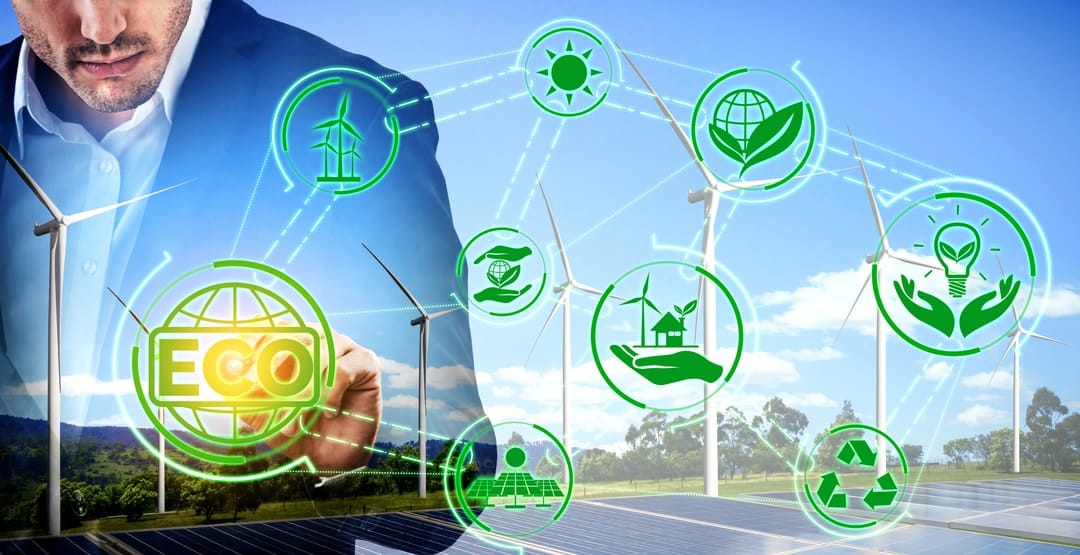
According to the most recent survey by global accounting firm PwC, some 65 per cent of CEOs worry about climate change.
They’re right to be concerned, with the International Monetary Fund describing global warming as a 'major financial risk'.
The Australian bushfires have provided a shocking illustration of the damage that (increasingly frequent) natural disasters can do to businesses, as well as to communities and to the environment.
It’s in that context that the Bank of International Settlements warns about ‘green swan’ events – as disruptive as unexpected ‘black swans’, but the result of well-understood environmental risks.
Without renewed action, we're currently on a path to three degrees warmer.
Fortunately, many CEOs are already acting, with major companies and investors globally and in Australia committing to eliminating all emissions from their businesses by 2050 or sooner – which aligns to the goal of 2°C or less.
Research by ClimateWorks Australia, which works within the Monash Sustainable Development Institute, has found more than a quarter of Australia’s ASX200-listed property companies have a target to reach net zero emissions for their owned and managed assets. Dexus, Mirvac and GPT are all aiming for net zero across their property portfolios by 2030.
Nine of Australia’s 20 largest banks now have a target of net zero emissions for their operations before 2050, with the four biggest aiming to source all of their electricity from renewable energy by 2025-2030. Some recognise that they need to extend this target to all their loans, too.
This month, Microsoft announced plans to be ‘carbon negative’ by 2030. Toyota plans to reach zero CO2 emissions in all manufacturing plants worldwide by 2050, and reduce emissions from its vehicles by 90 per cent compared to 2010 levels in the same period.
At its 2017 annual general meeting, Meat & Livestock Australia declared the red meat industry could be carbon neutral by 2030.
Many businesses – both here and overseas – are forming clubs or coalitions to set standards for zero emissions, and to work together to meet them.
The World Green Building Council’s Net Zero Carbon Buildings Commitment offers a clear example for property companies worldwide that commit to net zero emissions for their operations by 2030, and for all buildings in their portfolios to operate net zero by 2050.
Similarly, 130 banks from 29 countries (including Australia) have signed the Principles for Responsible Banking to align their business strategies with the goals of the Paris Agreement. Global investors have created the Net Zero Asset Owners Alliance.
Read more: Monash University's path to net zero emissions
In heavy industry, the recent World Economic Forum now convenes the Mission Possible Platform with the Energy Transitions Commission, which supports public and private sector alliances working on the industry transition towards net-zero greenhouse gas emissions by 2050.
These alliances cover aviation, circular cars, heavy-duty road transport, shipping, aluminium, chemicals, cement and concrete, and iron and steel. In all those sectors, companies are working together to get to zero emissions fast. They want to buy and produce zero emissions products and supplies.
Yet despite this, the same PwC survey shows only 17 per cent of Australian CEOs feel confident about opportunities in climate-driven products and services.

By contrast, the same figure in China is a remarkable 47 per cent.
In the wake of fires, Australian businesses of all shapes and sizes have shown a willingness to respond positively, making generous donations to assist with the bushfire response.
The next step for all to be asking is: Does your business have a plan for zero emissions?
It's well understood that bushfire risk will continue to worsen as long as temperatures keep rising. Temperatures will keep rising until emissions stop rising. So a compassionate response to the bushfires includes the reduction of future risk for all of us by reducing future emissions to net zero.
Only zero emissions halts the temperature rise.
We don’t like what one degree of warming is doing to us, and we’ve signed up to the global deal to halt the warming at 1.5 degrees – or 2 degrees, which is exponentially worse. It's a worldwide challenge – and we're all consumers and producers in a worldwide economy.
Ask the businesses you work in – and those you buy from and invest in – for their plan to get to zero emissions. Our research shows it can be done; there are plenty of examples showing the way, but much more is still needed. What matters now is getting serious about it, at all levels.





